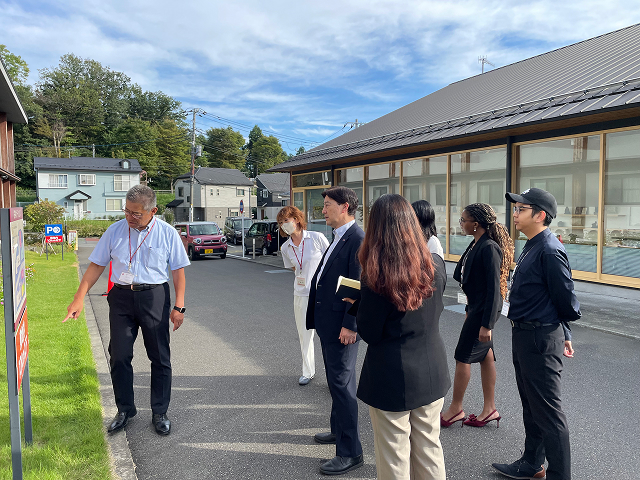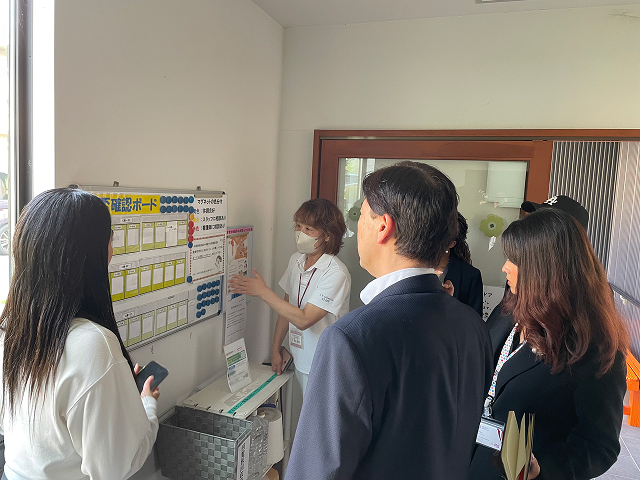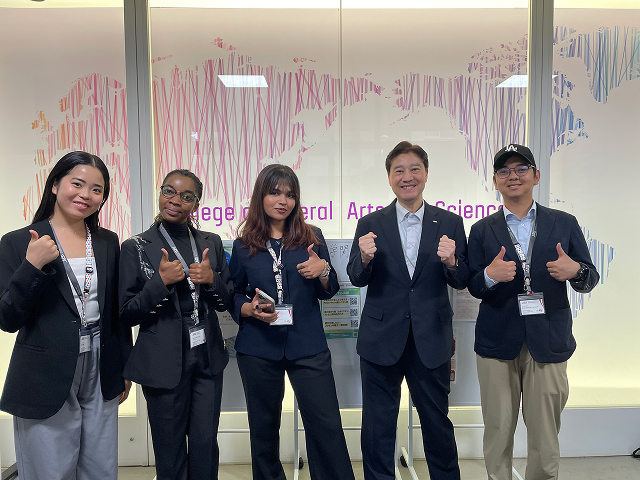On Thursday, October 2 and Friday, October 3, 2025, the Future Visionary Vice President and Summit Members conducted a study tour in the Tokyo metropolitan area. The aim of their visit was to explore innovative examples and gain insights into how the APU campus could embody the concept of Lifelong Learners (LLL)—the central theme of their activities this year.
On the first day, the members visited Obirin Garden Hills in Machida City, Tokyo. The facility, a senior residence operated in collaboration with J. F. Oberlin University, has attracted attention as a model for promoting intergenerational exchange between a university and the local community. During the visit, the group learned about the facility’s successful management practices, challenges, and specific initiatives designed to foster daily interactions. One particularly notable approach was the intentional design of “minor inconveniences” that encourage residents to naturally gather in shared spaces—allowing face-to-face interaction and daily wellbeing checks. Members were deeply impressed by these thoughtful design choices that create everyday contact and foster a sense of safety among senior residents. The facility also includes student apartments within the same grounds, where university students regularly interact with senior residents and work part-time at the facility. With 31 out of 32 units occupied, the site’s high occupancy rate underscores its success, offering valuable insights for the future development of APU’s campus and AP House facilities.
On the second day, the group visited Chiba University to meet with Associate Professor Tajima, who specializes in Continuing Care Retirement Community (CCRC) initiatives. A CCRC is a community model that enables senior residents to continue living in a familiar environment as they age, receiving care and medical support within the same community. Associate Professor Tajima delivered a lecture introducing CCRC cases from the United States and discussing efforts to develop a university-linked CCRC model adapted to Japan’s culture and social context.
The members then visited Tokyo Innovation Base, a startup support hub established by the Tokyo Metropolitan Government. This facility is one of Japan’s largest free-access startup platforms, supported by numerous corporate sponsors. Thanks to this visit, participants discovered new possibilities for integrating CCRC concepts with entrepreneurial support functions—such as those envisioned for APU’s AP House 4—broadening their perspectives on the future of campus design and community development.
This Tokyo study tour afforded the Future Visionary Vice President and Summit Members valuable insights for their future discussions, deepening their understanding of social systems that promote intergenerational learning and the creation of diverse, inclusive learning spaces.






